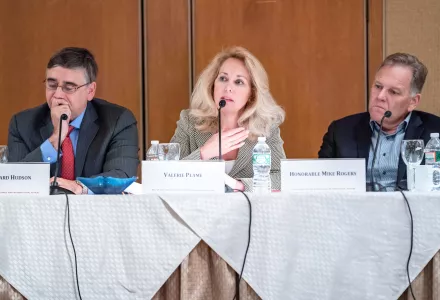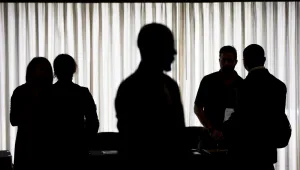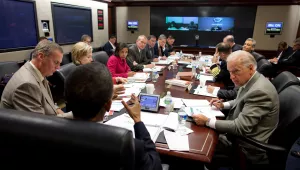In May, a number of former intelligence officers, policymakers, cyber experts, and top journalists took part in a Belfer Center Intelligence Project conference titled “The Ethics & Morality of Intelligence.”
Rolf Mowatt-Larssen, Director of the Intelligence Project and former Director of Intelligence and Counterintelligence at DOE, noted that as the world grows more complex, leaders and policymakers increasingly rely on intelligence to advance and defend their national interests. But this trend comes at a cost. There is a heightened risk of political figures violating long-standing norms of behavior that have historically constrained intelligence activity. This can take a number of forms, from manipulating elections and silencing dissent abroad to stoking low-intensity conflict or undermining the principle of objectivity.
Speakers at “The Ethics & Morality of Intelligence” conference identified and discussed key moral and ethical questions around the nature of current intelligence practices and future trends.
In a Harvard Gazette article about the conference, Christina Pazzanese wrote the following (excerpt):
In one session, project director Rolf Mowatt-Larssen, a former career CIA officer, asked panelists how politics intersects with intelligence. The group debated whether any intelligence work is ever free from politics, given that agencies work for a head of state who decides what priorities are pursued and what information will be shared with the public, and when.
For Valerie Plame, the politicization of intelligence was something “I experienced quite personally.” Plame, a former covert operations officer working in nuclear counterproliferation, recounted how politics derailed her career at the CIA during the run-up to the Iraq War. Her identity was infamously made public in 2003 by the conservative columnist Robert Novak, with help from senior White House officials, in retaliation for her then-husband Ambassador Joe Wilson’s public criticism of the Bush administration’s push for war.
Her outing, Plame said, began a bewildering time of fear for the safety of her family and her source network and uncertainty fighting the administration in court and in the media.
“Sometimes you’re going to deal with some very unseemly people in the intelligence business”—many of whom have done “some horrific things,” said Mike Rogers, a former Republican Congressman from Michigan who chaired the House Intelligence Committee from 2011 to 2015 and served as an FBI special agent.
For intelligence officers to gather information about a group’s intentions or capabilities, they often have to infiltrate and gain credibility with that group, which likely means engaging in activities “that we would all find morally objectionable,” said Rogers.
In that difficult environment, there are times when practitioners have to make close calls, and they don’t always get it right. “I wish the intelligence business was a binary question every time....Unfortunately, it is almost never a binary decision when you make it,” he said.
The keys to an ethical intelligence service are making sure officers are disciplined and well-trained in ethics, and ensuring that operations are closely guided by legal counsel and services are subject to regular, rigorous congressional oversight, Rogers said.
David Sanger, a veteran national security correspondent for The New York Times and a Belfer Center fellow and lecturer, said disclosing or publishing classified information is part of the job for reporters on his beat, but added that he uses great care, and the information is often the last piece of a puzzle that was started using open-source material and reporting.




